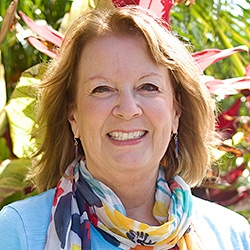

NVC Resources on Groups
-
If you’ve ever dreaded attending a meeting – or watched in dismay as your group collapses into conflict – know that a methodology known as Convergent Facilitation offers you possible solutions.
It’s based on one simple experience: that people come together at the level of their underlying principles, needs, aspirations, and dreams, not at the level of their surface positions.
Convergent Facilitation is a highly efficient decision-making process developed by Miki Kashtan from the principles of Nonviolent Communication. It enables you to look beneath the surface and find the essence of what’s important to different stakeholders, and bring it together into one set of principles that lead to proposals and ultimately decisions. As a result, it readily produces solutions and decisions that everyone can embrace.
-
Use these cards in your practice group or NVC training to understand 4 different ways of responding to hard to hear messages. Become aware of the way you habitually respond to stimulus and develop skills to respond with empathy and express honestly.
-
Even groups and organizations with noblest visions can slide into cult-like swamps. The reasons that bring people together are irrelevant; whether it's politics, spirituality, activism, art… a hidden hierarchy, plus dominance and submission dynamic can sprout, and beliefs that “we, our leader, and our path is better than others, we have all the answers”. As a member it can be hard to see. Here are signs of cult mentality and ways to assess.
-
Even leaders we admire may exhibit behaviors that could be labeled as abusive, at least slightly. This includes not treating followers as equals, using charm, and hiding or twisting truth. In such scenarios a key reason for this is loneliness. If we're using our work and position primarily to gain for appreciation, acknowledgement, and acceptance then we need to examine our own loneliness. We need feedback to keep such conduct in check.
-
What does nonviolence have to do with group facilitation?
Miki Kashtan believes that nonviolence is a way of being and living that orients us in all our thoughts, words and deeds toward the integration of truth, love and courage. All nonviolent individual and collective actions are aimed at preserving what serves life and challenging what does not. Facilitation is one clear path for bringing nonviolence to the world!
How can we act now, as facilitators, as if the world of our dreams, the Beloved Community, is already in place?
-
Trainer Tip: Meetings can be unproductive when the participants aren’t clear about their needs or what they want from the group. When participants express opinions without expressing a need or informing the group of what they want, the meeting lacks clarity. Instead, if we can focus on naming our needs and make related requests, we can get closer to resolution much faster and enjoy the process more. Read on for an example.
-
Exploring how to connect with your reasons for offering empathy when someone shares pain.
-
The awareness and practice of interdependence is integral to holding an NVC consciousness. Practicing interdependence also means bringing in a quality of care in the moments we want to change agreements with others. This article talks about where our various choices, in regards to changing agreements, fits into different levels of engaging our interdependence.
-
One clue we have trauma is when we respond in a way we don't want (eg. being reactive, self sabotaging, etc). Even when we have high level NVC skills our trauma-related mechanisms can activate, and we can lose access to well honed NVC skills. Read on for approaches that involve healing trauma, and approaches that involve managing the effects of trauma and preventing additional trauma.
-
Roxy Manning's 2023, 4 session course, will help you
- Explore several essential components of facilitation using a caring for all, power-with lens
- Know how to identify and gather together the people who need to be in the room
- Learn tips and strategies for ensuring all voices are heard
- Grow your capacity to name and address power dynamics and unconscious bias that impacts group members’ experience

Quick Links
Subscription Preferences
Stay In Touch!
Looking for ways to keep up with NVC Academy news, get special offers, free resources, or words of inspiration? Here are five ways to stay engaged:









